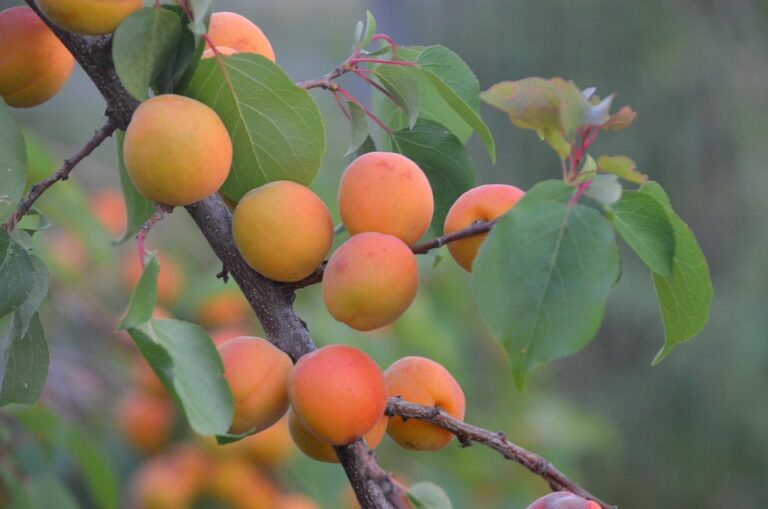Growing Green: Harnessing Sustainable Agriculture for a Thriving Planet
In a world increasingly focused on environmental challenges and climate change, the concept of sustainable agriculture is becoming ever more vital. As the global population continues to rise—projected to reach nearly 10 billion by 2050—the need for innovative farming techniques that protect our planet is essential. Sustainable agriculture not only fulfills the growing food demand but also safeguards vital natural resources, making it a critical aspect of a thriving planet.
What is Sustainable Agriculture?
Sustainable agriculture refers to farming practices that meet current food needs while ensuring the health of the land for future generations. This approach emphasizes methods that are economically viable, environmentally sound, and socially responsible. It seeks to reduce reliance on synthetic fertilizers and pesticides, mitigate soil erosion, conserve water, and build resilient farming systems.
The Importance of Sustainable Agriculture
-
Environmental Protection: Sustainable agriculture minimizes the impact on ecosystems and greatly reduces carbon emissions. According to the Food and Agriculture Organization (FAO), agriculture contributes to nearly 15% of global greenhouse gas emissions. Implementing sustainable practices can significantly lower these figures.
-
Economic Viability: By adopting sustainable methods, farmers can reduce costs associated with chemical inputs and improve soil health. This leads to better crop yields and lower economic risk—factors crucial for the long-term success of agricultural businesses.
- Food Security: Sustainable agriculture directly contributes to food security by increasing productivity while maintaining ecological balance. Techniques like crop rotation, agroforestry, and organic farming enhance biodiversity and resilience against pests and diseases.
Current Trends in Sustainable Agriculture
As the world embraces sustainability, various trends have emerged in the agricultural sector.
-
Regenerative Agriculture: This practice focuses on rehabilitating entire farming ecosystems. Techniques such as cover cropping and no-till farming encourage soil health and increase carbon sequestration.
-
Vertical Farming: With urban sprawl limiting arable land, many are turning to vertical farming. This method utilizes stacked layers to grow crops, maximizing productivity and minimizing land use, while also reducing transportation costs and emissions.
- Plant-Based Diets: A shift from meat-centric diets to plant-based eating is gaining momentum. Research from One Green Planet shows that plant-based diets can reduce carbon footprints by up to 73%. This not only influences consumer choices but also encourages farmers to diversify production.
The Role of Technology in Sustainable Agriculture
Innovation plays a crucial role in promoting sustainable agriculture.
-
Precision Farming: By using satellite technology and drones, farmers can monitor crop health in real-time. This leads to well-informed decisions regarding irrigation and fertilizers, thus optimizing resource use.
- Biotechnology: Advances in biotechnology, such as genetically modified organisms (GMOs), enable crops to withstand pests and environmental stress. When used responsibly, this technology can contribute significantly to sustainable agriculture.
Case Study: Success Stories in Sustainable Agriculture
One inspiring example of sustainable agriculture is the Ecovillage in Findhorn, Scotland, which integrates community living with sustainable farming practices. Utilizing permaculture principles, this community has seen an increase in biodiversity and food production while reducing its carbon footprint. The village grows most of its food onsite and demonstrates that sustainable living is not only possible but thriving.
Moving Towards a Sustainable Future
As we continue to face environmental challenges, the transition to sustainable agriculture must accelerate. Here are some actionable steps for farmers, consumers, and policymakers:
-
Support Local Farms: Consumers can support sustainable practices by purchasing from local farmers who employ environmentally friendly methods.
-
Advocacy and Education: Increasing awareness about the benefits of sustainable agriculture is vital for community support.
- Policy Changes: Governments can incentivize sustainable farming practices through grants, subsidies, and educational programs.
Conclusion
The importance of sustainable agriculture in fostering a thriving planet cannot be overstated. A commitment to environmentally friendly practices will ensure that future generations have access to the resources they need to thrive. As we harness sustainable agriculture, we must recognize our role as stewards of the Earth, prepared to cultivate a greener, more sustainable future.
For more insights on sustainable practices, check out our articles on The Future of Farming Innovations and Cooking Sustainably: Trendy Recipes for a Greener Kitchen.
To learn more about the ecological impacts of agriculture, the United Nations Food and Agriculture Organization provides extensive information and data here.
Disclaimer: The information provided in this article is for educational purposes only and does not constitute professional advice. Buzzo.live shall not be held liable for any inaccuracies or decisions made based on this content.


